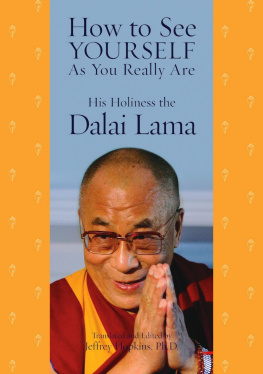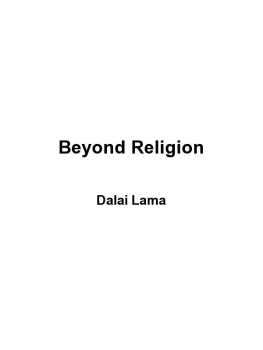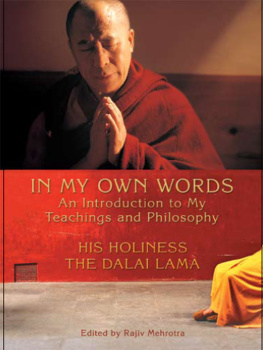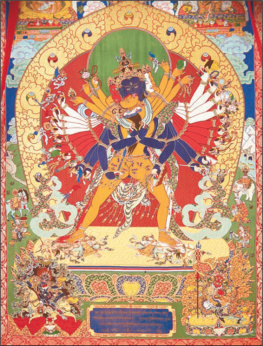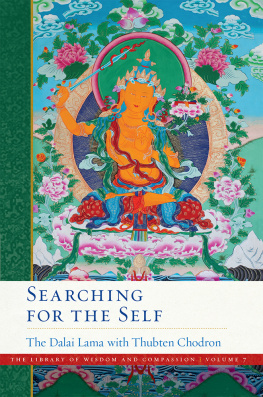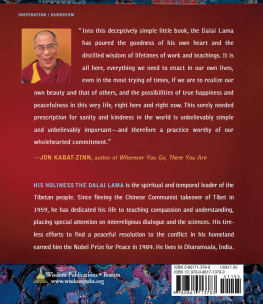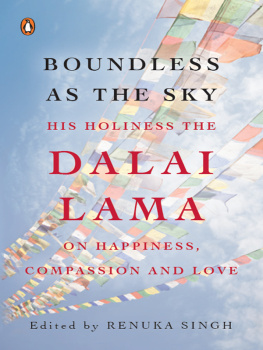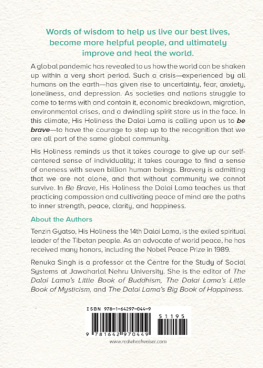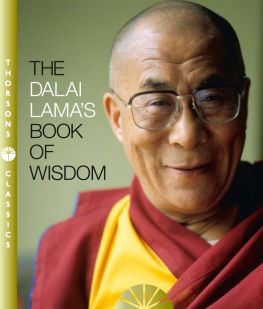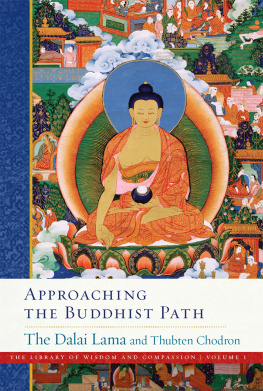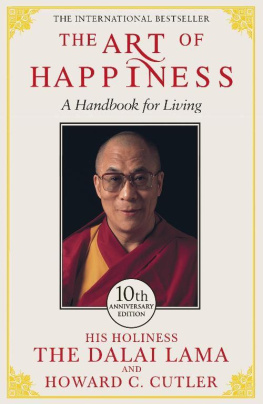His Holiness The Dalai Lama - The Basic Sources of Happiness
Here you can read online His Holiness The Dalai Lama - The Basic Sources of Happiness full text of the book (entire story) in english for free. Download pdf and epub, get meaning, cover and reviews about this ebook. year: 2013, publisher: Parallax Press, genre: Religion. Description of the work, (preface) as well as reviews are available. Best literature library LitArk.com created for fans of good reading and offers a wide selection of genres:
Romance novel
Science fiction
Adventure
Detective
Science
History
Home and family
Prose
Art
Politics
Computer
Non-fiction
Religion
Business
Children
Humor
Choose a favorite category and find really read worthwhile books. Enjoy immersion in the world of imagination, feel the emotions of the characters or learn something new for yourself, make an fascinating discovery.

- Book:The Basic Sources of Happiness
- Author:
- Publisher:Parallax Press
- Genre:
- Year:2013
- Rating:5 / 5
- Favourites:Add to favourites
- Your mark:
- 100
- 1
- 2
- 3
- 4
- 5
The Basic Sources of Happiness: summary, description and annotation
We offer to read an annotation, description, summary or preface (depends on what the author of the book "The Basic Sources of Happiness" wrote himself). If you haven't found the necessary information about the book — write in the comments, we will try to find it.
His Holiness The Dalai Lama: author's other books
Who wrote The Basic Sources of Happiness? Find out the surname, the name of the author of the book and a list of all author's works by series.
The Basic Sources of Happiness — read online for free the complete book (whole text) full work
Below is the text of the book, divided by pages. System saving the place of the last page read, allows you to conveniently read the book "The Basic Sources of Happiness" online for free, without having to search again every time where you left off. Put a bookmark, and you can go to the page where you finished reading at any time.
Font size:
Interval:
Bookmark:
The Basic
Sources of
Happiness
HIS HOLINESS THE DALAI LAMA

Berkeley, California

P.O. Box 7355
Berkeley, California 94707
www.parallax.org
Parallax Press is the publishing division of
Unified Buddhist Church, Inc.
Copyright 2013 by Unified Buddhist Church
All Rights Reserved
No part of this book may be reproduced in any form or by any means, electronic or mechanical, without permission in writing from the publisher.
Cover and text design by Debbie Berne
eBook ISBN: 978-1-937006-57-0
From Cultivating Altruism, by The Dalai Lama, from the Engaged Buddhist Reader, ed. Arnold Kotler (Parallax Press, 1996)
Contents
THE BASIC SOURCES OF HAPPINESS ARE a good heart, compassion, and love. If we have these, even if were surrounded by hostility, well feel little disturbance. On the other hand, if we lack compassion and our mental state is filled with anger or hatred, no matter what the situation, we wont have peace. Well feel insecure, and, eventually, afraid and lacking in self-confidence. Then even something small can destabilize our inner world. But if were calm, even if were confronted by a serious problem, well know how to handle it.
To utilize our human intelligence fully, we need calmness. If we become unstable through anger, its difficult for us to use our intelligence well. When were overly influenced by negative thoughts, our intelligence becomes tarnished. Looking at human history over the last few thousand years, and particularly in this century, we see that human tragedies like the Holocaust arise from negative emotions such as hatred, anger, fear, and suspicion. And we also see that the many positive developments of human history have all come from good mental states, such as compassion.
In economics today, every nation is dependent on every other nation. Even hostile nations have to cooperate in the use of the worlds resources. In both the global community and the family, human beings need harmony and cooperation, which comes through mutual respect. Altruism is the most crucial factor.
If an individual has a sense of responsibility for humanity, he or she will naturally take care of the environment, including slowing down industrial growth and population growth. If we think narrow-mindedly and see only our own surroundings, we wont create a positive future. In the past, when we neglected the long-term effects of our actions, it was less consequential. But today, through science and technology, we can create far greater benefits or much more serious damage. The threat of nuclear weapons and the ability to damage our environment through, for example, deforestation, pollution, and ozone layer depletion, are quite alarming. We can all see the dangers of potential tragedies here. But other barely noticeable changes, such as the loss of natural resources like topsoil, may be even more dangerous because, by the time they begin to affect us, it will be too late. In all respects, we see that genuine cooperation, the real sense of responsibility based on compassion and altruism, requires that we respect not only human beings, but also other species and the environment. Our altruistic mind is the key to our happiness as individuals, families, nations, and as an international community.
As I travel around the world and meet people from various walks of life, I see that many are now showing real concern about these matters and agree with these views. The fundamental question is how to develop and maintain compassion. Certain religious beliefs, if you have them, can be very helpful, but if you dont have them, you can also survive quite well. Compassion, love, and forgiveness, however, are not luxuries. They are fundamental for our survival.
Whenever I speak about the importance of compassion and love, people ask me what is the method for developing them? It isnt easy. Theres no particular package or method that enables you to develop these qualities instantaneously. You cant just press a button and wait for them to appear. I know that many people expect things like this from a Dalai Lama, but, really, all I have to offer is my own experience. If you find something useful in this, please use it. But if you dont find much of interest, I dont mind if you just leave it.
We must begin by investigating our own daily experience and reading stories about others to see the consequences of anger and the consequences of love and compassion. If we make a comparative study of these two attitudes, well develop a deeper understanding of the negative results of anger and the postitive results of compassion. Once were convinced of the benefits of compassion and the negative consequences of anger and hatredthat they always cause unhappiness within uswe will make greater efforts to have less anger. We usually think our anger is protecting us from something, but thats a deception. Most important is to realize the negative consequences of anger and hatred. Negative emotions do not help at all.
Sometimes people feel that when theres a natural disaster or a tragedy brought about by human beings, they will have more energy and boldness to fight back if theyre angry. But, in my experience, even though anger gives us energy to act or to speak out, its blind energy and difficult to control. During that moment, we may not care, but, after a few minutes, we will feel much regret. When were angry, we use nasty or harsh words, which, once spoken, cant be withdrawn. Afterward, when our anger has disappeared and we see the other person again, we feel terrible. During that moment, we lost our judgment and became half-mad. There are many different levels and forces of anger. When a small anger is about to arise, its easy to control. But, if a stronger, more forceful anger comes, we have to try different techniques to handle it. Once we see negative mental states as negative, that alone will reduce their strength. Through my own experience, Im convinced that as a result of less anger, we become happier and healthier, smile and laugh more, and have more friends. Mental tranquility, or calmness, is a very important source of happiness. An external enemy, no matter how powerful, cannot strike directly at our mental calmness, because calmness is formless. Our happiness or joy can only be destroyed by our own anger. The real enemy of joy is anger.
There are many different states of mind, and each directly affects our happiness. When we examine different states of mind within ourselves, we can cultivate and develop those that are positive and beneficial and avoid and eliminate those that are negative and destructive. The basic difference between the investigation of external matter and the investigation of mind is that the former requires large laboratories and a huge budget. In the internal world, you just investigate which thoughts are useful and which ones are harmful, and you keep and develop the ones you like, making constant effort. Over time, your mental state will become much better balanced, and you will find that you are happier and more stable. This is a kind of yoga for the mind.
Each day when we wake up, we can say to ourselves, Altruistic attitude. If we have an altruistic attitude, many favorable things will come. I practice these things and I know theyre helpful. I try to be sincere with everyone, even the Chinese government officials. If I develop some kind of ill-will, anger, or hatred, who will lose? I will lose my happiness, my sleep, and my appetite, but my ill feelings wont hurt the officials at all. If Im agitated, my physical condition will become weak, and some people I could make happy will not become happy.
Next pageFont size:
Interval:
Bookmark:
Similar books «The Basic Sources of Happiness»
Look at similar books to The Basic Sources of Happiness. We have selected literature similar in name and meaning in the hope of providing readers with more options to find new, interesting, not yet read works.
Discussion, reviews of the book The Basic Sources of Happiness and just readers' own opinions. Leave your comments, write what you think about the work, its meaning or the main characters. Specify what exactly you liked and what you didn't like, and why you think so.

